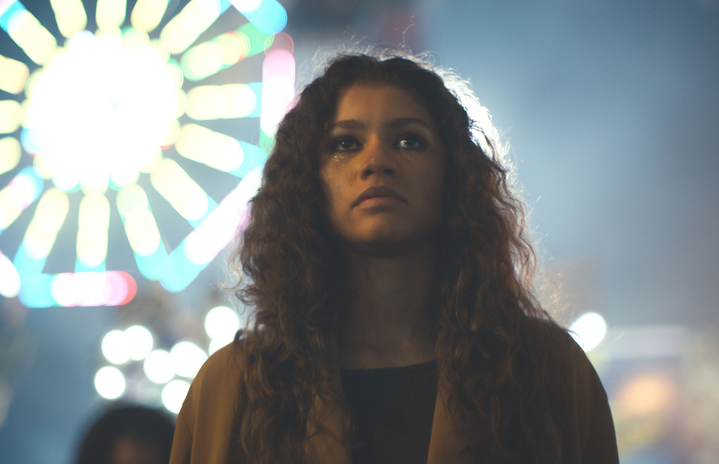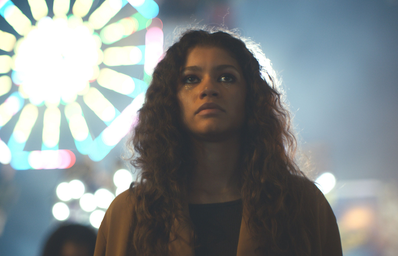From Labrinth’s mesmerising soundtrack to the colourful makeup tutorials scattered all over the internet, there is no way you haven’t heard of HBO’s hottest series: Euphoria. The show’s first season amassed 6.6 million viewers and it only went up from here with the premiere of its second season, which brought in a whopping 13.1 million viewers, an increase nearing 100x.
So, what is it that makes this show so addictive? I can guarantee that this series is not similar to anything you have watched before. There are several pertinent issues of our generation which are expertly tackled, such as addiction, sex and trauma. It doesn’t follow the traditional binary pattern of having good and bad characters. In its place is a whole host of personalities, each flawed, and possessing loathsome qualities which make the viewer feel both resentment and pity towards them. In the first season, each episode focuses on one character and we get a glimpse of the personal problems they face. For example, in episode 1, we are acquainted with our protagonist, Rue, who is played by Zendaya. We follow her journey of drug abuse following her release from rehab, and are informed about how it all began following her father’s successive sickness and death. We see throughout the show, the destructive effect this has on her relationships with both her family and her classmates, which makes us sympathise with her.
Needless to say, the show’s uniqueness has generated a lot of intense backlash. The organisation D.A.R.E. (Drug and Alcohol Resistance Education) released a statement denouncing the show for ‘[glamourising] drug use and addiction’, deeming it inappropriate for teenagers. Levinson’s captivating and psychedelic cinematography which mirror the highs and lows of drug addiction have received criticism for attributing a sense of aestheticism to drug use.
The lack of education for the youth surrounding topics such as substance abuse generates more fear from adults who view this work as a negative influence for their children. However, shying away from these pressing issues, crucial to the times we live in, won’t make them disappear. Levinson believes that depicting drug misuse in a realistic manner is a means of education and that ‘by showing [their] allure, and the relief they can bring, [it would shed light on] what makes them so destructive.’ In support of this, Zendaya claims that Euphoria is ‘in no way a moral tale to teach people how to live their life or what they should be doing’ but that it seeks to ‘help people feel a little bit less alone in their experience and their pain.’
The deliberate choice of wardrobe in this show reflects the development of its characters. A prime example of this would be Kat (Barbie Ferreira). A reserved character at the start of Season 1, she hides behind her large-framed glasses and wears plain-coloured clothes to blend in with her background. However, in Episode 3, we see her style evolve radically, in correlation to her growing confidence, wearing heavy eyeliner and bright red lipstick which catches the attention of her classmates.
Similarly, the carefully crafted lyrics of Labrinth’s album for the show help to bring out core themes and reflect the characters’ internal thoughts. The hit song, ‘Still Don’t Know My Name’, recounts the tragic feeling of loving someone more than you are loved. The scene where Rue first catches sight of Jules is symbolic of this, as she forms an immediate fascination with her which is not entirely reciprocated. We see this play out at the end of Season 1, where Jules shows considerably less commitment than Rue, making the song a clever use of foreshadowing.
There is no doubt that HBO’s Euphoria sparks a lot of emotion, whether they be good or bad; but with cautious viewing and appreciation for its artistry, it is clear that the aim of its creators is not to encourage destructive behaviours but rather, to raise awareness about them.

